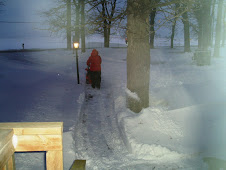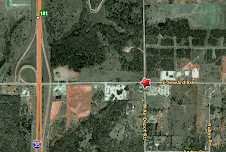Born to slave parents in 1838 in Crawford County Arkansas, Bass Reeves would become the first black US Deputy Marshal west of the Mississippi River and one of the greatest frontier heroes in our nation’s history.
Owned by William Reeves, a farmer and politician, Bass, like many slaves of the time, took the surname of his owner.
At 6’2”, with good manners and a sense of humor, George Reeves, William's son, made him his personal companion. When the Civil War broke out, Texas sided with the Confederacy and George Reeves went into battle, taking Bass with him.
It was during the Civil War that Bass, for some unknown reason, left Reeves and fled to Indian Territory where he took refuge with the Seminole and Creek. It was here he practiced and perfected his firearm skills. Though Reeves claimed to be "only fair” with a rifle, he was barred on a regular basis from competitive turkey shoots.
"Freed” by the Emancipation Proclamation in 1863 and no longer a fugitive, Reeves left Indian Territory and bought land near Van Buren, Arkansas. A successful farmer and rancher, he married Nellie Jennie. They raised 10 children on their homestead -- 5 girls and 5 boys.
Reeve’s life as a contented farmer was about to change when Isaac C. Parker was appointed judge for the Federal Western District Court at Fort Smith, Arkansas on May 10, 1875. At the time Parker was appointed, Indian Territory had become extremely lawless as thieves, murderers, and anyone else wishing to hide from the law, took refuge in the territory that previously had no federal or state jurisdiction.
One of Parker's first official acts was to appoint US Marshal James F. Fagan as head of a unit of 200 deputies tasked with "cleaning up” Indian Territory and on Judge Parker's orders, "Bring them in alive --- or dead!" Fagan was to hire his own men and heard of Bass Reeves' knowledge of the area, as well as his ability to speak several tribal languages, and recruited him as a US Deputy.
Reeves began to ride the Oklahoma range in search of outlaws. Covering some 75,000 square miles, the United States Court at Fort Smith, was the largest in the nation. Leaving Fort Smith, he would generally take with him a wagon, a cook and a Native American posse man. Often the trip took them to Fort Reno, Fort Sill and Anadarko, a round trip of more than 800 miles.
Reeves could not read or write and before he headed out, he would have someone read him the warrants and he would memorize them. When asked to produce the warrant, he never failed to pick out the correct one.
He rode a large white stallion and earned a reputation for his courage and success at bringing in or killing many desperadoes of the territory. He was a "spiffy" dresser, a large hat, his boots always shined. He was known for his polite and courteous manner. A master of disguises and aliases, he often appeared as a cowboy, farmer, gunslinger, or outlaw. He was ambidextrous when it came to shooting and wore 2 Colt pistols, butt forward -- rarely missed.
Leaving Fort Smith with a pocketful of warrants, Reeves would return months later herding a number of outlaws charged with crimes ranging from bootlegging to murder. Paid in fees and rewards, he made a handsome profit, spent a little time with his family and returned to the range.
The tales of his captures are legendary – filled with intrigue, imagination and courage. Though the tales of Reeves’ heroics are many and varied, the toughest manhunt for the lawman was that of hunting down his own son. After having delivered two prisoners to U.S. Marshal Leo Bennett in Muskogee, Oklahoma, he arrived to bad news. His own son had been charged with the murder of his wife. Though the warrant had been lying on Bennett’s desk for two days, the other deputies were reluctant to take it and though Reeves was shaken, he demanded to accept the responsibility for finding his son. Two weeks later, Reeves returned to Muskogee with his son in tow and turned him over to Marshal Bennett. His son was tried and sent to Kansas’ Leavenworth Prison. However, sometime later, with a citizen’s petition and an exemplary prison record, his son was pardoned and lived the rest of his life as a model citizen.
In 1907, law enforcement was assumed by state agencies and Reeves’ duties as a deputy marshal came to an end. He took a job as a patrolman with the Muskogee Oklahoma Police Department. During his 2 years on the force, there were no crimes reported on his beat. A diagnosis of Bright’s disease finally ended his career. He died January 12, 1910. The location of his grave in Muskogee is unknown.
Over the 35 years that Bass Reeves served as a Deputy United States Marshal, he brought in more than 3,000 outlaws and killed 14.
Many argue there is evidence that Bass Reeves was the basis of "The Lone Ranger", with several key similarities between the character and the real legend.
Subscribe to:
Post Comments (Atom)
















No comments:
Post a Comment